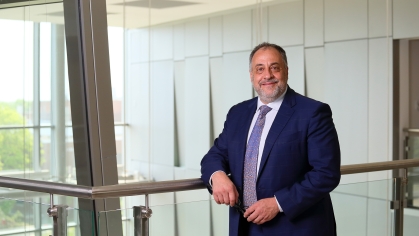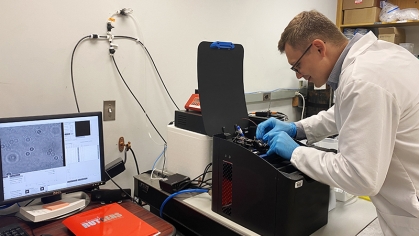Annalisa Scacchioli Receives 2021-2022 Chancellor-Provost Award for Faculty Excellence

Each year, the Rutgers University Chancellor-Provost’s Awards for Faculty Excellence honor outstanding faculty achievements in pioneering research, innovative teaching, and impactful service.
Annalisa Scacchioli, an assistant teaching professor in the Department of Mechanical and Aerospace Engineering (MAE), is the recipient of the 2021-2022 Chancellor-Provost Award for Excellence in Teaching Innovations.
“Having my work recognized by colleagues and administrators gives me more freedom and enthusiasm to innovate my teaching further to make an even greater impact on my students’ success,” Scacchioli says. “It ultimately awards the work I was able to do for our students’ success thanks to school and department support.”
During the pandemic, Scacchioli rose to the challenge of entirely virtual instruction by making significant changes in her courses. Piloting the use of individual Arduino boards into her multidisciplinary mechatronics course enabled her students to gain hands-on-experience using single-board microcontrollers with integrated sensors and actuators to design and implement software for real-time simulations for data acquisition, analysis, and control while learning online. “As a result of the success of my pilot project, the department adopted the use of individual Arduino boards for lab experiments,” she recalls. “This has become the new departmental standard, with more MAE courses adopting the use of individual Arduino kits for hands-on lab experiments.”
In 2021, following her university-wide collaborative leadership, Gradescope, an innovative digital grading platform that Scacchioli had adopted for use in her large-size courses, was officially integrated in Canvas, Rutgers’ learning management platform, and is available for all University faculty. Gradescope allows for more efficient, targeted, and actionable feedback to support student mastery of learning goals.
Scacchioli has also embraced approaches that continually assess and improve her courses to further support student learning outcomes. She developed novel learning assessment tools based on ABET learning outcomes and on Bloom's Taxonomy . “These tools include both quantitative and qualitative course assessment through a synergistic combination of student work and student surveys implemented in Gradescope and Qualtrics digital platforms together with feedback from students and peers,” she explains.
An engineering education is built on a combination of problem solving, critical thinking, and technical skills. “I work to provide students with such foundational content knowledge while employing innovative active learning pedagogy and using a student-centered course design model,” Scacchioli adds.


